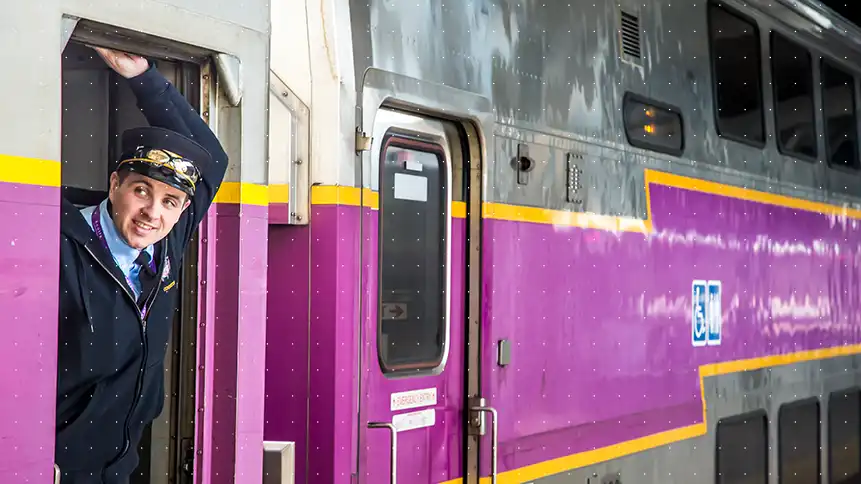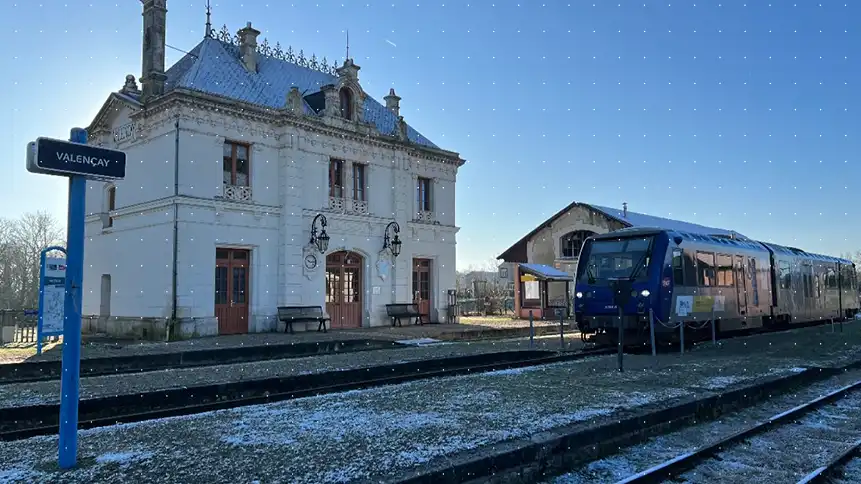Passenger rail transport is popular across the world as it connects communities, offers a comfortable mobility solution to passengers and has a low carbon footprint. Building on its extensive experience in designing, operating and maintaining multimodal networks, Keolis offers sustainable passenger rail services constantly fine-tuned to meet the needs of local communities.
Keolis, a global rail reference
As a global expert in shared mobility, Keolis connects communities by rail in many places around the world. At the end of 2023, the Group deployed its rail expertise further in the Netherlands. With a presence in the country dating back to 1999, Keolis today operates the cross-country Valleilijn, between Amersfoort (Utrecht province) and Ede-Wageningen (Gelderland province). The line is 34 km long, and its eight stations cover a population of 350,000 people.

Keolis, rail expertise on three continents
- 2,500km of railway track in operation
- 12regional rail networks in 5 countries: Australia, France, Netherlands, United Kingdom, United States.
- 1stprivate firm to operate a passenger rail network in Australia: in Adelaide, South Australia, serving 1.3 million inhabitants
Trains: a key link in the local transport chain
Keolis strives to provide a transport service range from the first to the last mile. To this end, the Group works with each public transport authority to set up multimodal transport interchanges, clear signage and multi-mode combinations using all available local transport modes Including metros, trams, buses, carshares and bikeshares. By making travel easier for thousands of passengers, Keolis contributes not only to regional economic development, but also to employment.
Quality for passenger wellbeing
Making passengers’ daily lives simpler
As part of its efforts to make the passenger experience ever more enjoyable, Keolis places digital technology at the heart of its rail networks. In the Dutch provinces of Gelderland and Overijssel the Group has deployed a MaaS (Mobility as a Service) application with which national and regional train passengers can use their smartphones to book, pay for and validate their tickets. They can also plan multi-modal routes, thanks to the incorporation of other available transport modes in the area.
By focussing on clarity of signage, public address and displayed information and accessibility, Keolis pays close attention to the quality of information supplied to passengers.
Improving travelling conditions
Keolis incorporates the upgrading of existing trains into its operating offer, as illustrated in the Netherlands: toilets, wider and more comfortable seats, powerful Wi-Fi, USB ports and power sockets provide passengers with comfort and convenience throughout their journey. The Group also offers solutions to optimise passenger flows, for example by rearranging train layouts and increasing the number of seats.
Keeping trains on track thanks to big data
Keolis deploys its predictive maintenance expertise on the rail lines it operates. Using asset management software, the Group can anticipate rolling stock failures to ensure the highest possible quality of service for passengers.
In the United States, where Keolis operates 14 lines, 139 stations and 640 km of track in the Greater Boston area, Keolis has fitted the MBTA’s 30-year-old trains with sensors. These can count passengers, record vibrations, measure carriage temperature and detect any door malfunctions. The data is then centralised, analysed and processed using predictive algorithms, with the aim of planning maintenance, limiting breakdowns and delays and adjusting the number of trains to passenger numbers, in a drive to constantly improve comfort.
More sustainable mobility with passenger rail
As an alternative to driving a private car, train travel is a first step to controlling the carbon footprint of transport. Keolis wishes to go even further in low carbon mobility. In the Netherlands, the new contract awarded at the end of 2023 includes the takeover of seven electric trains.

